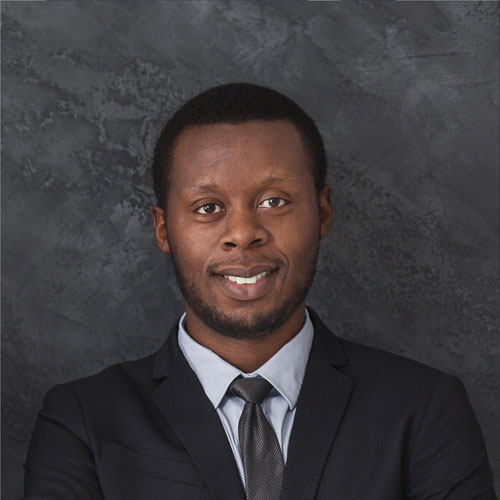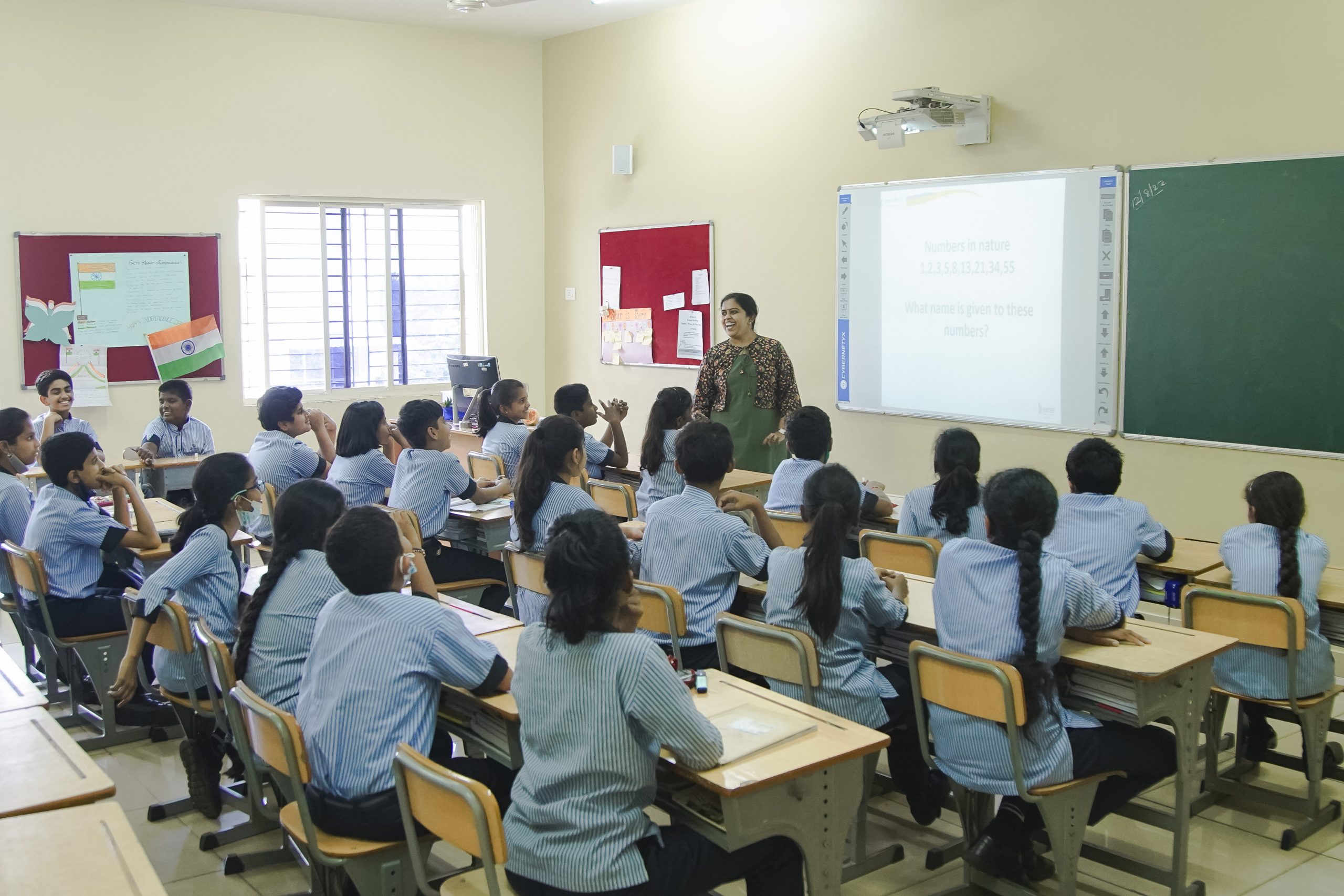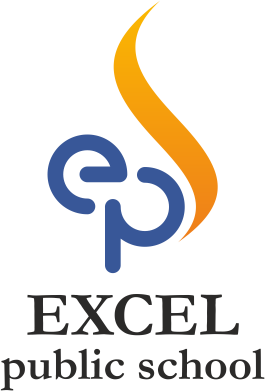Preparatory Stage
- Preparatory Stage



Introduction
The Preparatory Stage marks a vital phase in a child’s educational journey, transitioning from play-based learning to a more structured approach. This stage focuses on nurturing foundational skills and introducing core subjects like Mathematics, Environmental Studies (EVS), and languages. Emphasizing critical thinking, problem-solving, and inquiry-based learning, it prepares students for deeper academic engagement while maintaining a strong experiential and constructivist approach. Aligned with the National Education Policy (NEP) and National Curriculum Framework (NCF), our curriculum integrates arts, sports, and physical education, ensuring the holistic development of each child. With clear learning outcomes and diverse assessment methods, the Preparatory Stage is designed to create a dynamic and engaging learning environment, setting the stage for lifelong curiosity and growth
Academics
At Excel Public School, the Preparatory Stage (ages 8-11) builds upon the foundations laid during the early years, guiding children toward more structured learning while preserving their natural curiosity and enthusiasm for discovery. During this critical stage of development, our curriculum aligns with the NEP 2020 framework to ensure a seamless transition from foundational to preparatory education, emphasizing both academic excellence and the holistic growth of each child.
The preparatory curriculum is enriched with opportunities for children to develop their multiple intelligences, catering to different learning styles and strengths. Through a blend of hands-on activities, group projects, and collaborative learning experiences, students cultivate their interpersonal, logical, spatial, linguistic, and kinesthetic abilities. Additionally, children participate in arts, sports, and physical education, which are seamlessly integrated into the curriculum, fostering physical well-being, creativity, and emotional intelligence.
Language development continues to be a focal point, with an emphasis on building strong reading, writing, speaking, and listening skills. Structured activities such as storytelling sessions, group discussions, and presentations help enhance oral communication skills and boost self-confidence. Quality Time Circle (QTC) provides a platform for students to share thoughts, ideas, and experiences, fostering a sense of community and mutual respect.
Music, dance, and movement activities are integral part of the programme, contributing to the development of gross and fine motor skills, coordination, rhythm, and an appreciation of the arts. Art integration remains a key pedagogical approach, using various forms of visual and performing arts to explore and internalize concepts across subjects, making learning engaging and enjoyable.
Our classrooms are equipped with digital interactive boards, providing a stimulating environment for interactive learning. With ample outdoor spaces for physical activities, nature walks, and creative exploration, Excel Public School ensures that each child receives a balanced education that nurtures their intellectual, emotional, social, and physical development.
By combining a structured academic framework with experiential and inquiry-based learning, we prepare our students not just for the next stage of their education but for a lifetime of learning, curiosity, and growth.
Curriculum
The Preparatory Stage (Grade 3 to 5) at Excel Public School is designed to build upon the foundational years by transitioning children into a more structured and formalized learning environment while still retaining elements of joy, creativity, and curiosity. This stage is crucial in consolidating the core skills developed in the early years, focusing on enhancing students’ understanding and application of concepts across various subjects.
Following the guidelines of the National Curriculum Framework for School Education and the NEP 2020, the curriculum at the Preparatory Stage emphasizes a child-centred, experiential approach that encourages critical thinking, problem-solving, and self-expression. Subjects like Mathematics, Environmental Studies (EVS), and languages are introduced and explored through engaging, multi-sensory methods that connect classroom learning to real-world contexts, fostering a deep, meaningful understanding of each subject.
Our curriculum integrates play-based, activity-based, discovery-based, and inclusive learning methodologies to ensure that learning remains enjoyable and engaging. We provide opportunities for hands-on exploration and encourage inquiry, allowing children to ask questions, seek answers, and build their knowledge independently. Lessons are designed to cater to different learning styles and intelligences, supporting each child’s unique developmental trajectory.
At Excel Public School, the Preparatory Stage nurtures every child’s inherent potential, ensuring they are confident, curious, and ready to take on more complex challenges in their educational journey. By providing a balanced curriculum that combines academic rigour with creativity, experiential learning, and physical activity, we aim to prepare our students for success in higher grades and beyond, fostering a lifelong love for learning.
- Emphasis on Core Subjects
- Critical thinking
- Well-Rounded Education
- Physical Development
- Socio-Emotional and Ethical Development
- Sensorial Enhancement
- Values and Ethics
- Leadership and Ethics
- Vocabulary Enrichment
- General Awareness on facts and current affairs
- Personal Development
- Computational Thinking
- Language and Literacy Development
- Aesthetical and Cultural Development
- Visual Arts
- Fine and Gross Motor Skills
- Reasoning and Problem-Solving Skills
- Language and Communication Skills
- Critical and Creative Thinking Skills
- Socio-Emotional Skills
- Interpersonal Skills
- Imagination Skills
• Flexibility and Adaptability
• Initiative and Self Direction
• Social and Cross-Cultural Skills
• Productivity and Accountability
• Leadership and Responsibility
Assessment and Evaluation
Aligned with the National Education Policy (NEP) 2020 and the National Curriculum Framework, the assessment and evaluation practices for the Preparatory Stage at Excel Public School focus on holistic development rather than mere academic performance. The approach is comprehensive, integrating both formative and summative assessments to support and enhance the learning process.
Formative Assessments:
- Conducted regularly through informal methods like observations, quizzes, classroom discussions, interactive activities, and peer feedback.
- Emphasizes continuous assessment to monitor and support learning progress, providing timely feedback to students after every unit test.
- Focuses on assessing the development of critical thinking, problem-solving, creativity, and application of knowledge in real-life contexts.
Summative Assessments:
- Students in these classes will have three assessments during the academic year. The report will be sent to the parents after each assessment along with the grades for the performance of the learners in the various skill areas, both in the scholastic and co-scholastic activities.
- Provides a comprehensive overview of a child’s academic growth across all subjects.
Anecdotal Records and Portfolios:
- The School maintains a collection of students’ work, including projects, creative writing, artwork, and reflections, to showcase their progress over time.
- Anecdotal records document specific observations of students’ behaviours, skills, and achievements, providing qualitative insights into their socio-emotional and cognitive development.
Each assessment is systematically documented to monitor individual growth over time, with regular feedback provided to support continuous improvement. These assessment methods ensure that every child’s progress is measured in a comprehensive, fair, and constructive manner, promoting lifelong learning and growth. Each assessment is thoroughly documented to track the child’s progress and at the end of the Academic Year, this process culminates in a detailed Holistic Progress Report, offering insights into the child’s development across cognitive, socio-emotional, and physical domains.
Activities
The Foundational Stage encompasses a crucial phase in a child’s learning journey. Special attention is paid to making sure that children enjoy every aspect of schooling in their formative years. This stage prioritizes flexible, multi-level, play-based, activity-based, and discovery-based learning, integrating the latest research in early childhood care and education.
Children typically build upon their existing learning experiences from home and/or previous schooling. At Excel Public School, we facilitate their learning through well-planned and stimulating play-based approaches that foster their interests, curiosity, and creativity.
In accordance with the NEP 2020, we have introduced the ‘Foundational Stage’ within our formal school system. This initiative allows us to establish a foundation school that offers a holistic, fun-filled, stress-free, and child-centered learning experience for our early learners (Pre-KG, Kindergarten, Grades 1 and 2). The significance of early childhood education cannot be overstated, as these years profoundly impact a child’s lifelong growth, development, and overall well-being. Therefore, EFS strives to provide a balanced and comprehensive foundational curriculum that lays the groundwork for students’ academic success in higher grades, as well as their emotional well-being in all relationships.
Areas of Learning
- Physical Development
- Personal, Socio-Emotional and Ethical Development
- Cognitive Development
- Language and Literacy Development
- Aesthetic and Cultural Development
- Core and Additional subjects: Kannada, English, Hindi (Third Language), Mathematics, Environmental Science, Computer Science, General Knowledge and Life Skill Education.
- Co- & Extra-Curricular Programmes: Yoga, Art, Craft, Clay Modeling, Physical Education, Dramatics, Music, Dance and Library, Gardening, Creativity Display, Dramatics, Music, Dance, Life Skill Education, Robotics, Computer Graphics, STEAM Projects, Tinkering etc.
- Core and Additional subjects: English, Second Language (Kannada/Hindi), Third Language (Hindi/Kannada), Mathematics, Science & Technology, Social Science, Computer Science and Environmental Education.
- Co- & Extra-Curricular Programmes: Yoga, Art, Craft, Clay Modeling, Physical Education, Library, Gardening, Creativity Display, Dramatics, Music, Dance, Life Skill Education, Robotics, Computer Graphics, STEAM Projects, Tinkering etc.
- Core and Additional subjects: English, Second Language (Kannada/Hindi), Mathematics, Science & Technology, Social Science, Artificial Intelligence, Information Technology and Environmental Education.
- Co- & Extra-Curricular Programmes: Yoga, Art, Physical Education, Music, Dance, Computer Graphics, Robotics, Life Skill Education, STEAM Projects, Model Making and Creativity Display, Tinkering etc.
- Language: (Compulsory for all)
- English
- Academic Subjects: (Any ONE subject from this group is compulsory. It can also be all the FOUR Subjects from this group)
- Mathematics
- Applied Mathematics
- Physics
- Chemistry
- Biology
- Computer Science
- Vocational/Skill Subjects:
- Designlish
- Information Technology
- Additional Skills & Programmes:General Awareness, Work Education, Health & Physical Education, Fine Arts, Artificial Intelligence, Inter-disciplinary Projects, Machine Learning, Coding, Internships etc.
Assessment and Evaluation
CBSE has brought in some reforms in the evaluation pattern and the examination from the academic year 2020–21 and onwards. The examination will be conducted as per the remodelled assessment structure explained below:
Classes 3 to 5
Students of these classes will have three assessments during the academic year. The report will be sent to the parents after each assessment along with the grades for the performance of the learners in the various skill areas, both in the scholastic and co-scholastic activities.
Classes 6 to 8
The assessment and examination structure for classes 6 to 8 has been prepared in view of the provisions of RTE-Act 2009 and comprises of two terms: i.e., Term 1 and 2 as explained below:
| Subject | TERM-1 (100 marks) (1st half of the session) 20 Marks Periodic Assessment (PA) + 80 Marks for Half Yearly Exam | TERM-2 (100 marks) (2nd half of the session) 20 Marks Periodic Assessment (PA) + 80 Marks for Year-end Exam | ||
|---|---|---|---|---|
| PA 20 Marks | Mid-Year Exam | PA 20 Marks | Yearly Exam | |
| Language – 1 | Periodic Test 10 marks with syllabus covered till | Written exam for 80 marks with syllabus covered till | Periodic Test 10 marks with syllabus covered till | Written exam for 80 marks with syllabus coverage as below: |
| Language – 2 | announcement of test dates by school. | announcement of Half Yearly exam by school. | announcement of test dates by school. | Class VI: 10% of 1st term covering significant |
| Language – 3 | Note book submission: | Note Book submission: | ||
| Mathematics | 5 marks at term-end. | 5 marks at term- end. | topics + entire syllabus of 2nd term. | |
| Science | Subject Enrichment:5 marks at term-end | Subject Enrichment:5 marks at term-end. | Class VII: 20% of 1st term covering significant topics + entire syllabus of 2nd term. | |
| Social Science | Class VIII: 30% of 1st term covering significant topics + entire syllabus of 2nd term. | |||
| Subject | 80 Marks (Final Assessment) Student has to secure 33% marks out of 80 marks in each subject | 20 Marks (Internal Assessment) Student has to secure 33% marks out of overall 20 marks earmarked in each subject. | ||
|---|---|---|---|---|
| Periodic Assessment (10 Marks) | Portfolio (5 Marks) | Subject Enrichment Activity (5 Marks) | ||
| i | ii | iii | ||
| Language 1 | School/Board will conduct final assessment for 80 marks in each subject covering 100% syllabus. | Periodic Pen Paper Test – 5 Marks | (Classwork, peer & self-assessment, achievements of student in the subject, reflections, narrations, journals, etc.) | Speaking and Listening Skills |
| Language 2 | Objective type including Multiple Choice Questions-20% | (Written test restricted to three in each subject in an Academic Year). | Speaking and Listening Skills | |
| Science | Case-based/source-based Integrated questions-20% | (Average of the best two tests will be taken for final marks submission) | Practical Lab Work | |
| Mathematics | Short Answer/Long Answer Questions-60% | Math Lab Work | ||
| Social Science | Marks and Grades will both be awarded for Individual subjects. A 9-point grading will be followed | Multiple Assessment – 5 Marks (Quizzes, oral test, concept map, exit cards, visual expressions etc.) | Project work | |
| Skill Subject** Information Technology/ Artificial Intelligence |
|
|||
| Maximum marks per subject | 100 marks |
|---|---|
| Types of Assessment |
|
Academic Subjects
|
Marks Distribution – (Internal Assessment: Board Examination/Year End Examination) 20:80 30:70 |
| Components of Board examination paper |
|
Skill Subjects
|
|
- Overall Assessment and Session Ending Assessment of 50% weightage each.
- Overall Assessment includes Periodic Tests and Half Yearly examination.
- Year ending examination includes complete syllabus in theory and practical/project.
- The qualifying marks in each subject will be 33%.
- In a subject involving practical work a student must obtain 33% marks in theory and 33% marks in practical’s separately in addition to 33% marks in aggregate, in order to qualify in that subject.
- For class 12 the Board will conduct the external examinations at the end of Class 12. Pattern of Class 11 for Periodic Test and Half Yearly will be followed in Class 12 also.
- In Class 12, CBSE guidelines will be followed and there will be CBSE conducted Board Examination in February/ March.
Sociosqu tellus neque pharetra augue bibendum netus ad a pellentesque.
Sociosqu tellus neque pharetra augue bibendum netus ad a pellentesque.
Sociosqu tellus neque pharetra augue bibendum netus ad a pellentesque.
Academic Schedule
9:00 am to 3:00 pm (Monday to Friday)
- Monday to Friday : 10:00 am to 4:30 pm
- Saturdays : 10:00 am to 1:00 pm
- Foundation School will have HOLIDAYS ON ALL SATURDAYS (except when they have some special programmes, for which advance intimation shall be sent).
- Parents desirous of meeting Class Teachers/Subject Teachers would do so ONLY on SECOND SATURDAYS between 10:00 am and 12:30 pm. Teachers WILL NOT be available to meet the parents on the Third and Fourth Saturdays, unless with prior permission.
- THE FIRST SATURDAY of every month will be a Holiday for the Foundation School.
The academic year spreads from the first week of June to the last week of March. The Annual Assessment Reports would be distributed on or before the 10th of April.
Students have holidays of two weeks during Dasara and one week during Christmas–New Year, apart from the two months of Summer Holidays (during April–May).
Every student is given a ‘Handbook’ that would contain all the activities and events during the academic year, including the holidays and special programmes
Prescribed Textbooks
Pellentesque felis eros fames id torquent molestie himenaeos.
Pellentesque felis eros fames id torquent molestie himenaeos.
Pellentesque felis eros fames id torquent molestie himenaeos.
Pellentesque felis eros fames id torquent molestie himenaeos.
Pellentesque felis eros fames id torquent molestie himenaeos.
Pellentesque felis eros fames id torquent molestie himenaeos.
Faculty Details



- Preparatory Stage
- Preparatory
- Faculty details
Department Contact info
eps@excelpublicschool.com
+91 821 2971004 / 2972121 / 9686574556
eps.hg@excelpublicschool.com
0821-4527173 / 4527145
Follow our social media
Download Documents:

Excel Public School is affiliated with the Central Board of Secondary Education (CBSE), New Delhi, and follows the educational programme as suggested/recommended by it.
Instructional strategy at EPS focuses on building skills in all the intelligences, based on the theory of ‘Multiple Intelligences’. Importance is given to learning through presented with authentic issues to explore, students are encouraged to inquire, take risks, share their ideas and stretch to new levels of performance. The educational programme at EPS is expected create self-directed, self-motivated and passionate learners, who would be sensible, sensitive and socially responsible at all times, and prove themselves to be an asset to the society, the nation and the world at large.
The hallmark of our school is the blend of teaching-learning process with technology. The educational methods and materials are enhanced with the help of technology tools and multimedia objects. This empowers the teachers and students to achieve effective learning in all its aspects. We try to incorporate some of the best teaching learning practices to maximize the learning experience of our students. Blended learning methodology encourages all-round development of students and provides learning opportunities to students of varying learning abilities, styles and pace. Teachers provide personalized instruction for all students at all levels.
Student performance will be monitored based on the inputs captured on an ongoing basis. Assessment at the school is based upon clearly-defined purposes, goals and criteria. Student progress is measured against developmental benchmarks, based on accepted standards in each subject area.
Focused areas of growth and development at the Foundational, Primary, Middle, Secondary & Senior Secondary School Levels include
• Creativity and Innovation
• Critical Thinking and Problem Solving
• Communication
• Collaboration
• Global Awareness
• Financial, Economic and Entrepreneurial
• Literacy
• Media Literacy
• Health and Civic Literacy
• Environmental Literacy
• Flexibility and Adaptability
• Initiative and Self Direction
• Social and Cross-Cultural Skills
• Productivity and Accountability
• Leadership and Responsibility
Curriculum at the Foundational Stage
The Foundational Stage encompasses a crucial phase in a child’s learning journey. Special attention is paid to making sure that children enjoy every aspect of schooling in their formative years. This stage prioritizes flexible, multi-level, play-based, activity-based, and discovery-based learning, integrating the latest research in early childhood care and education.
Children typically build upon their existing learning experiences from home and/or previous schooling. At Excel Public School, we facilitate their learning through well-planned and stimulating play-based approaches that foster their interests, curiosity, and creativity.
In accordance with the NEP 2020, we have introduced the ‘Foundational Stage’ within our formal school system. This initiative allows us to establish a foundation school that offers a holistic, fun-filled, stress-free, and child-centered learning experience for our early learners (Pre-KG, Kindergarten, Grades 1 and 2). The significance of early childhood education cannot be overstated, as these years profoundly impact a child’s lifelong growth, development, and overall well-being. Therefore, EFS strives to provide a balanced and comprehensive foundational curriculum that lays the groundwork for students’ academic success in higher grades, as well as their emotional well-being in all relationships.
Areas of Learning
- Physical Development
- Personal, Socio-Emotional and Ethical Development
- Cognitive Development
- Language and Literacy Development
- Aesthetic and Cultural Development
- Core and Additional subjects: Kannada, English, Hindi (Third Language), Mathematics, Environmental Science, Computer Science, General Knowledge and Life Skill Education.
- Co- & Extra-Curricular Programmes: Yoga, Art, Craft, Clay Modeling, Physical Education, Dramatics, Music, Dance and Library, Gardening, Creativity Display, Dramatics, Music, Dance, Life Skill Education, Robotics, Computer Graphics, STEAM Projects, Tinkering etc.
- Core and Additional subjects: English, Second Language (Kannada/Hindi), Third Language (Hindi/Kannada), Mathematics, Science & Technology, Social Science, Computer Science and Environmental Education.
- Co- & Extra-Curricular Programmes: Yoga, Art, Craft, Clay Modeling, Physical Education, Library, Gardening, Creativity Display, Dramatics, Music, Dance, Life Skill Education, Robotics, Computer Graphics, STEAM Projects, Tinkering etc.
- Core and Additional subjects: English, Second Language (Kannada/Hindi), Mathematics, Science & Technology, Social Science, Artificial Intelligence, Information Technology and Environmental Education.
- Co- & Extra-Curricular Programmes: Yoga, Art, Physical Education, Music, Dance, Computer Graphics, Robotics, Life Skill Education, STEAM Projects, Model Making and Creativity Display, Tinkering etc.
- Language: (Compulsory for all)
- English
- Academic Subjects: (Any ONE subject from this group is compulsory. It can also be all the FOUR Subjects from this group)
- Mathematics
- Applied Mathematics
- Physics
- Chemistry
- Biology
- Computer Science
- Vocational/Skill Subjects:
- Designlish
- Information Technology
- Additional Skills & Programmes:General Awareness, Work Education, Health & Physical Education, Fine Arts, Artificial Intelligence, Inter-disciplinary Projects, Machine Learning, Coding, Internships etc.
Assessment and Evaluation
CBSE has brought in some reforms in the evaluation pattern and the examination from the academic year 2020–21 and onwards. The examination will be conducted as per the remodelled assessment structure explained below:
Classes 3 to 5
Students of these classes will have three assessments during the academic year. The report will be sent to the parents after each assessment along with the grades for the performance of the learners in the various skill areas, both in the scholastic and co-scholastic activities.
Classes 6 to 8
The assessment and examination structure for classes 6 to 8 has been prepared in view of the provisions of RTE-Act 2009 and comprises of two terms: i.e., Term 1 and 2 as explained below:
| Subject | TERM-1 (100 marks) (1st half of the session) 20 Marks Periodic Assessment (PA) + 80 Marks for Half Yearly Exam | TERM-2 (100 marks) (2nd half of the session) 20 Marks Periodic Assessment (PA) + 80 Marks for Year-end Exam | ||
|---|---|---|---|---|
| PA 20 Marks | Mid-Year Exam | PA 20 Marks | Yearly Exam | |
| Language – 1 | Periodic Test 10 marks with syllabus covered till | Written exam for 80 marks with syllabus covered till | Periodic Test 10 marks with syllabus covered till | Written exam for 80 marks with syllabus coverage as below: |
| Language – 2 | announcement of test dates by school. | announcement of Half Yearly exam by school. | announcement of test dates by school. | Class VI: 10% of 1st term covering significant |
| Language – 3 | Note book submission: | Note Book submission: | ||
| Mathematics | 5 marks at term-end. | 5 marks at term- end. | topics + entire syllabus of 2nd term. | |
| Science | Subject Enrichment:5 marks at term-end | Subject Enrichment:5 marks at term-end. | Class VII: 20% of 1st term covering significant topics + entire syllabus of 2nd term. | |
| Social Science | Class VIII: 30% of 1st term covering significant topics + entire syllabus of 2nd term. | |||
| Subject | 80 Marks (Final Assessment) Student has to secure 33% marks out of 80 marks in each subject | 20 Marks (Internal Assessment) Student has to secure 33% marks out of overall 20 marks earmarked in each subject. | ||
|---|---|---|---|---|
| Periodic Assessment (10 Marks) | Portfolio (5 Marks) | Subject Enrichment Activity (5 Marks) | ||
| i | ii | iii | ||
| Language 1 | School/Board will conduct final assessment for 80 marks in each subject covering 100% syllabus. | Periodic Pen Paper Test – 5 Marks | (Classwork, peer & self-assessment, achievements of student in the subject, reflections, narrations, journals, etc.) | Speaking and Listening Skills |
| Language 2 | Objective type including Multiple Choice Questions-20% | (Written test restricted to three in each subject in an Academic Year). | Speaking and Listening Skills | |
| Science | Case-based/source-based Integrated questions-20% | (Average of the best two tests will be taken for final marks submission) | Practical Lab Work | |
| Mathematics | Short Answer/Long Answer Questions-60% | Math Lab Work | ||
| Social Science | Marks and Grades will both be awarded for Individual subjects. A 9-point grading will be followed | Multiple Assessment – 5 Marks (Quizzes, oral test, concept map, exit cards, visual expressions etc.) | Project work | |
| Skill Subject** Information Technology/ Artificial Intelligence |
|
|||
| Maximum marks per subject | 100 marks |
|---|---|
| Types of Assessment |
|
Academic Subjects
|
Marks Distribution – (Internal Assessment: Board Examination/Year End Examination) 20:80 30:70 |
| Components of Board examination paper |
|
Skill Subjects
|
|
- Overall Assessment and Session Ending Assessment of 50% weightage each.
- Overall Assessment includes Periodic Tests and Half Yearly examination.
- Year ending examination includes complete syllabus in theory and practical/project.
- The qualifying marks in each subject will be 33%.
- In a subject involving practical work a student must obtain 33% marks in theory and 33% marks in practical’s separately in addition to 33% marks in aggregate, in order to qualify in that subject.
- For class 12 the Board will conduct the external examinations at the end of Class 12. Pattern of Class 11 for Periodic Test and Half Yearly will be followed in Class 12 also.
- In Class 12, CBSE guidelines will be followed and there will be CBSE conducted Board Examination in February/ March.
Sociosqu tellus neque pharetra augue bibendum netus ad a pellentesque.
Sociosqu tellus neque pharetra augue bibendum netus ad a pellentesque.
Sociosqu tellus neque pharetra augue bibendum netus ad a pellentesque.
Academic Schedule
9:00 am to 3:00 pm (Monday to Friday)
- Monday to Friday : 10:00 am to 4:30 pm
- Saturdays : 10:00 am to 1:00 pm
- Foundation School will have HOLIDAYS ON ALL SATURDAYS (except when they have some special programmes, for which advance intimation shall be sent).
- Parents desirous of meeting Class Teachers/Subject Teachers would do so ONLY on SECOND SATURDAYS between 10:00 am and 12:30 pm. Teachers WILL NOT be available to meet the parents on the Third and Fourth Saturdays, unless with prior permission.
- THE FIRST SATURDAY of every month will be a Holiday for the Foundation School.
The academic year spreads from the first week of June to the last week of March. The Annual Assessment Reports would be distributed on or before the 10th of April.
Students have holidays of two weeks during Dasara and one week during Christmas–New Year, apart from the two months of Summer Holidays (during April–May).
Every student is given a ‘Handbook’ that would contain all the activities and events during the academic year, including the holidays and special programmes
Prescribed Textbooks
Pellentesque felis eros fames id torquent molestie himenaeos.
Pellentesque felis eros fames id torquent molestie himenaeos.
Pellentesque felis eros fames id torquent molestie himenaeos.
Pellentesque felis eros fames id torquent molestie himenaeos.
Pellentesque felis eros fames id torquent molestie himenaeos.
Pellentesque felis eros fames id torquent molestie himenaeos.
Faculty Details



